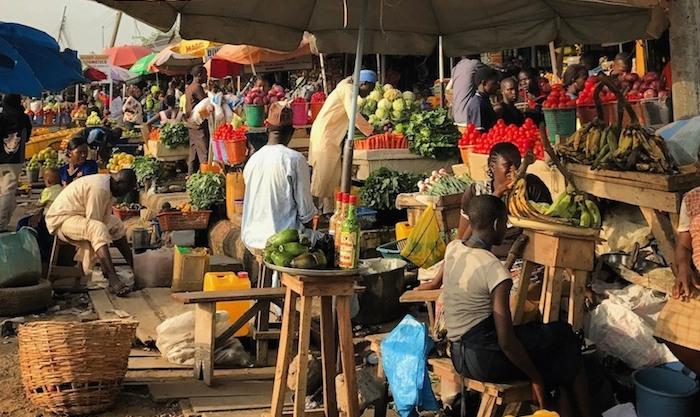
The International Institute of Tropical Agriculture (IITA) has urged governments at all levels to make tangible investments and provide adequate support for young farmers to boost food production in the country.
The organisation warned that Nigeria’s food security remains elusive due to insufficient support for farmers.
Chief Executive Officer, IITA Youth in Agribusiness Office, Aline Mugisho, raised this concern on Saturday during the donation of farm inputs and machines to young farmers in the Federal Capital Territory.
The items were donated under the YAS project, supported by the Embassy of the Kingdom of the Netherlands in Nigeria. The organisation donated the items to 135 farmers it had previously trained in aquaculture, poultry, horticulture, and other value chains.
The donated items include 148 bags of fish feed, fingerlings, collapsible tarpaulin ponds, various sizes of fish smoking kilns, broiler starter feed, 148 bags of poultry feed, a full irrigation kit for horticultural crops, 2,000-capacity water tanks, fertiliser, and a chicken plucker, which removes feathers within seconds.
Mugisho stressed the need for stakeholders to treat agriculture as a business rather than charity to ensure food security in Nigeria.
She said: “I don’t think we have interventions like this across the country because if we did, we would have enough food by now. We have many ideas that don’t translate into interventions. That’s why I say a lot of people claim they are producing food or supporting young people, but when you look at it holistically, the support is more verbal than material.
“Another issue is that people are treating agriculture as charity. We don’t believe in charity in agriculture. We believe in building the next generation of entrepreneurs—young people who will replace the ‘Dangotes’ of this country.
“As a research institution, the International Institute of Tropical Agriculture focuses on technology production. We work with youth to catalyse this technology and ensure it impacts the market.”
Mugisho also stressed the importance of government support, saying: “We need the government to support these young people. We can only provide a minimum to create case models to show that businesses in agriculture can thrive and that young Nigerians are successfully engaging in it.
“If we support them to increase production, we will certainly have more food. However, there is a limit to what we can do as a private sector or institution. Our goal is to prove to investors, banks, the Nigerian government, and other stakeholders that young Nigerians are building businesses and are interested in agriculture. If we support them, they will build a roadmap and pathway to food security in Nigeria,” he said.
Mugisho explained that the input support followed training, business development, and ongoing mentoring provided to the young farmers, aiming to help them scale up their businesses.
She advised the beneficiaries to make good use of the items, noting that further support would be provided if the items were put to profitable use. She added that the project aims to train 10,000 youths in various agricultural value chains.
“Those receiving this support are part of those who underwent training, and we are now providing them with the resources to start or scale up their businesses. We realised that capacity development alone is not sufficient. Today, we are reaffirming our commitment to raising a new generation of young agripreneurs, which is what this program is all about,” Mugisho added.
One of the beneficiaries, Umar Farouq, said his farming methods were primitive until he participated in the project. “I’m a poultry farmer, and to the glory of God, with the help of YAS, they gave us intensive training, and it has reflected on my farm. My productivity has increased, and with this new equipment, our productivity and capacity will improve further.”
Another beneficiary, Amara Ogechi Felicia, expressed her gratitude for the project, saying the training, mentoring, and support had exceeded her expectations.
“I’m a fish farmer, and I was trained in aquaculture. Honestly, I initially doubted the project, thinking it was just another organisation looking for numbers. But through the program, I learned, re-learned, and unlearned several things I thought I knew. The training was truly impactful.
“At one point, I had to stop the business due to the high cost of feed, but this input support will make a significant difference. I received 12 bags of 4mm feed and 450 fingerlings. Honestly, that’s a lot compared to what I had before. This is a major expansion for my business, and I’m very excited,” she said.






